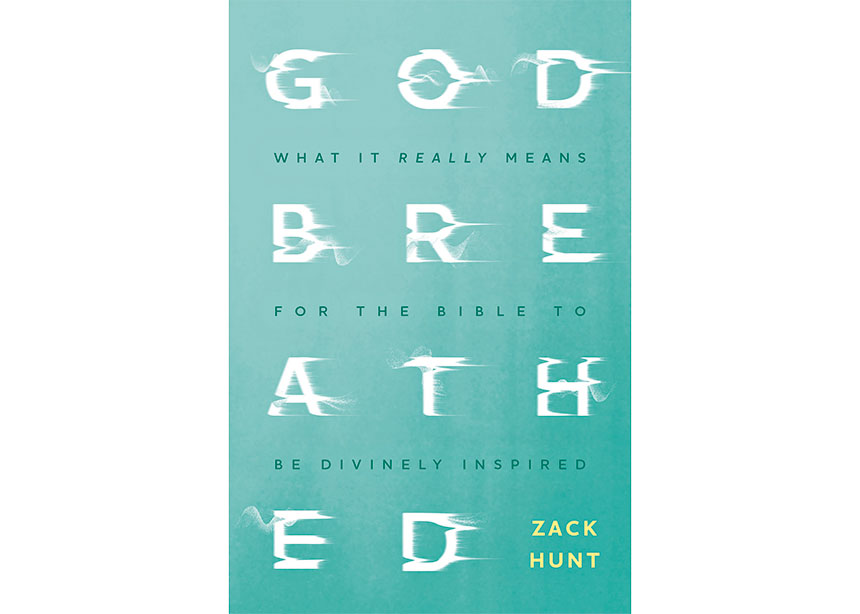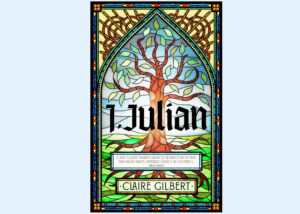Zack Hunt was shocked when his Old Testament professor slammed a Bible against the chalkboard and shouted, “Stop worshipping this book!”
In Hunt’s American fundamentalist upbringing, the Bible was considered inerrant—free of all errors, and not to be slammed against chalkboards. His new book, Godbreathed: What it Really Means for the Bible to be Divinely Inspired, describes how he moved beyond the biblical idolatry his professor warned of, to a different understanding of divine inspiration.
Hunt’s first book, Unraptured: How Ends Times Theology Gets it Wrong, was published by Herald Press in 2019.
Inerrancy is a modern concept, he says. The Bible is a collection of books, and it took centuries for the church to decide which books should be included. There was no magic process in making these decisions. “What we see are real people with real diversity of thought, opinion, and practice trying to figure it out on the fly,” he writes.
It was not until the Protestant Reformation in the 16th century that “the Bible went from the collection of sacred stories and lessons told in church, to a cherished representation of the divine,” says Hunt. By the nineteenth century, scholars in the Enlightenment tradition were questioning the historic and scientific accuracy of Bible stories and in response, controversy arose in the Christian church. Hunt says that before 1910 there were no discussions about biblical inerrancy, but not long after, fundamentalists declared it inerrant.
“Rather than following the way of Jesus, inerrancy chooses the path of Icarus,” says Hunt, commenting that self-righteous confidence in one’s ability to interpret the Bible is the opposite of Christlike humility. The Bible becomes an idol if Christians defend their theology with the assumption that their opinions are the actual words of God. The Bible becomes a weapon when there is no room for interpretation or disagreement.
The fear of hell is an important driver for the idea of a perfect Bible, says Hunt. Fundamentalist Protestantism rests on the idea that faith alone is what saves you from the fires of hell, so it is natural to want to be confident that you are confessing the right faith and that your faith is based on a reliable source. But a life built on rigid theology and the idea of a perfect Bible tends to disregard Christ’s message of love. When right belief is the focus, it encourages the love of ideas more than people.
“Scripture doesn’t exist as a manual for getting yourself to heaven or a weapon to wield against your enemies or a list of facts to memorize. It’s a field guide for loving your neighbor,” writes Hunt, stressing that if our interpretation of the Bible doesn’t lead us to love God and love our neighbours, we have missed the point.
Hunt found it freeing to move beyond literalism. He points to the fact that some early church fathers argued for an allegorical rather than literal interpretation of scripture and that there are several cases in which the biblical text does not line up with archeological and historical evidence. Viewing the Bible as stories of faith that testify to what God has been doing allows for better intellectual integrity. Truth is set free when scripture is regarded as a collection of sacred stories rather than as a science textbook.
In their argument for biblical inerrancy, Christian fundamentalists point to II Timothy 3:16, which says all scripture is “God-breathed.” Hunt says this an incorrect interpretation of God’s inspiration. Inspiration refers not to a “one-time literary magic trick,” but an ongoing process of God interacting with his people. He writes, “Godbreathed Scripture isn’t a proof text for perfection but an acknowledgment that Scripture is inherently imperfect because it is written by godbreathed people.” Hunt’s use of God-breathed without a hyphen is deliberate; he wants readers to view the word from a fresh perspective.
On the issue of authority, Hunt says, “the Bible has no authority outside of the community of faith that gives it authority.” Because it is “a collection of written works compiled by the people of God” it receives its authority from the people of God. The Bible is not autonomous; it is an authority alongside the church.
Hunt’s book is interesting, easy to read and geared for lay people. Anyone with questions about the Bible or struggling with the idea of inerrancy should find it helpful. On the other hand, readers who have had no exposure to fundamentalism may find it a bit puzzling. Those wanting to move beyond fundamentalism may well find it freeing.








Leave a Reply
You must be logged in to post a comment.